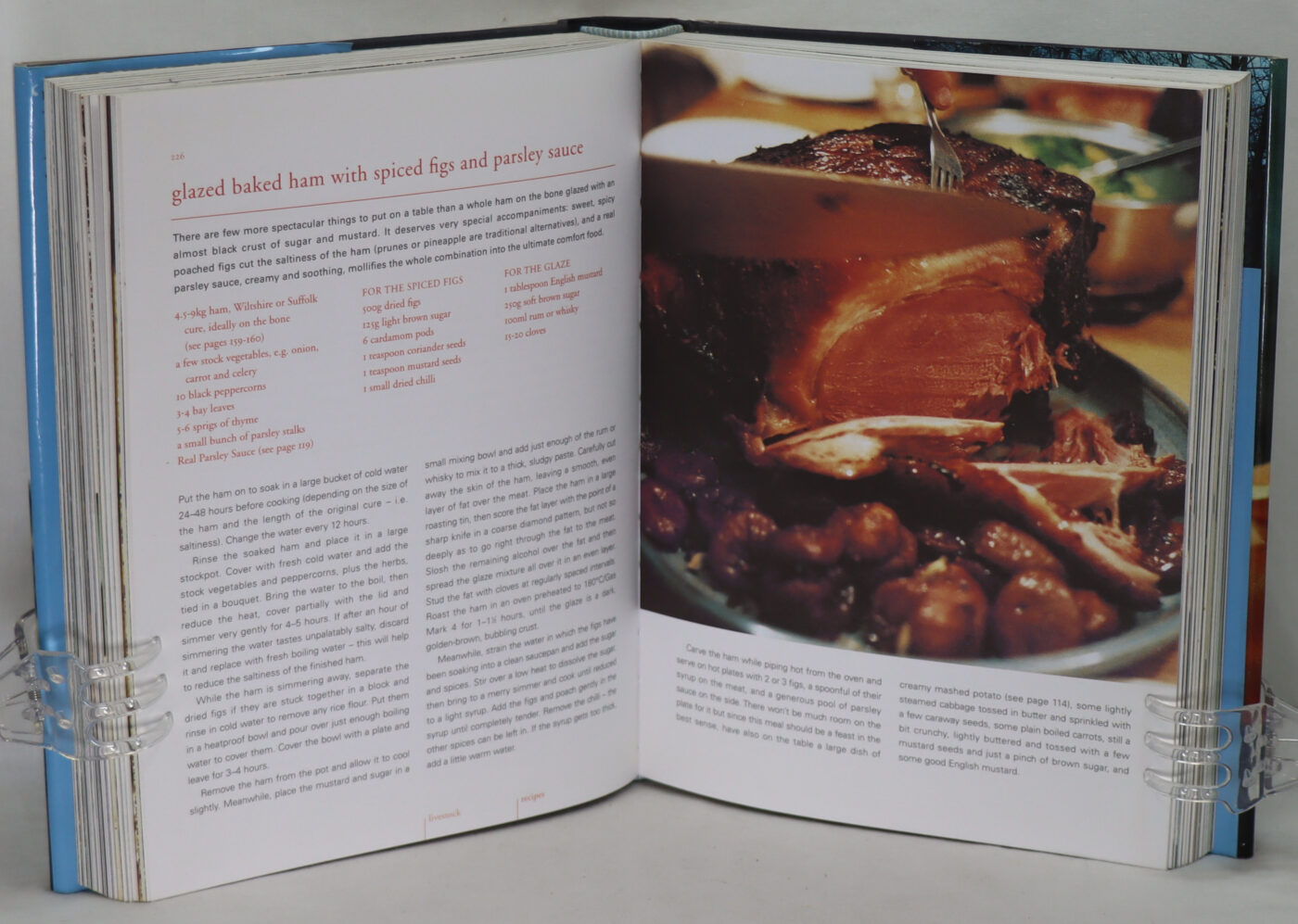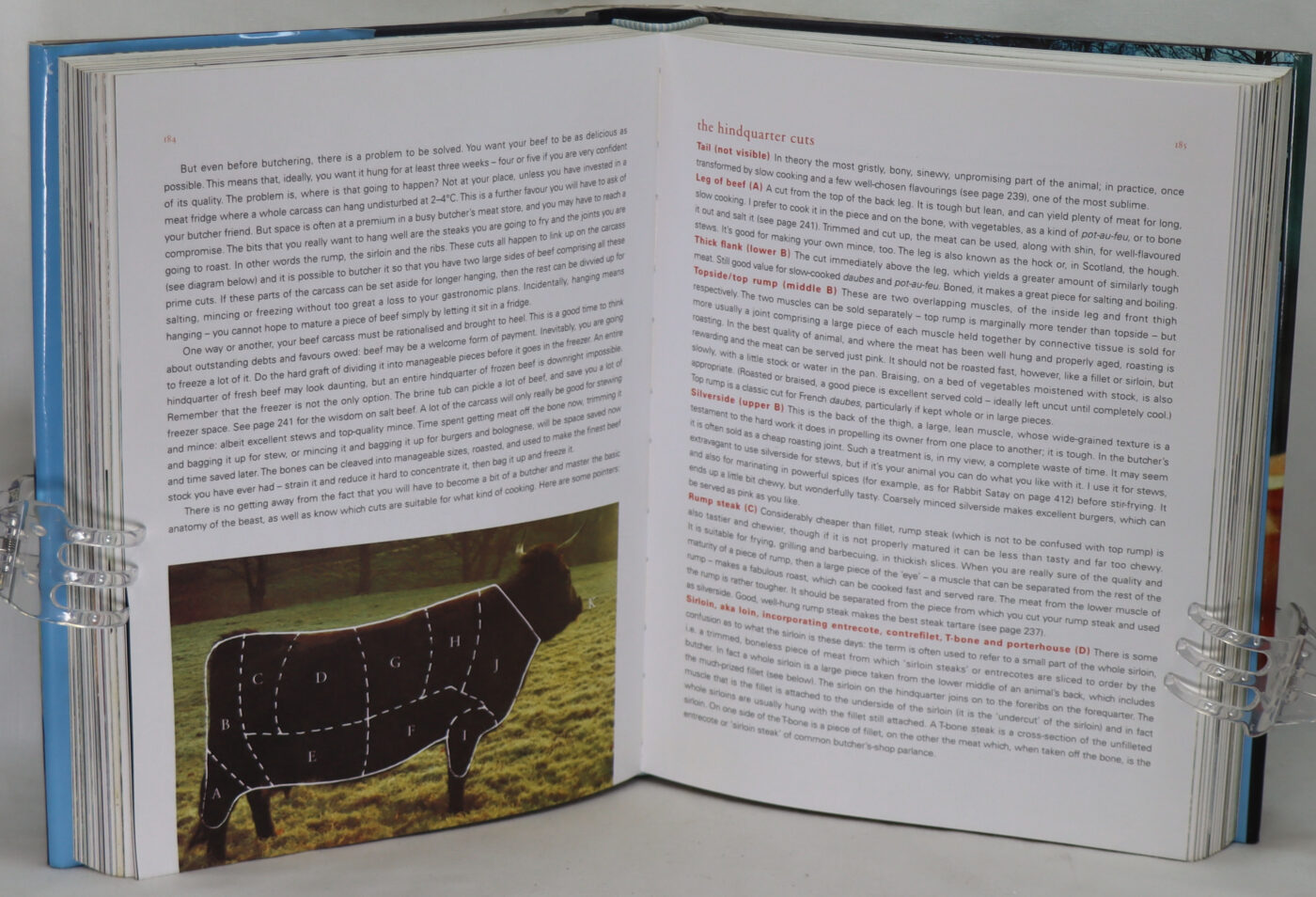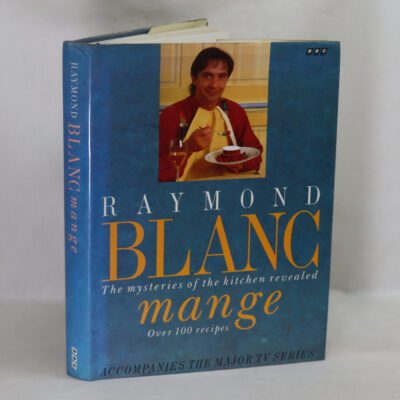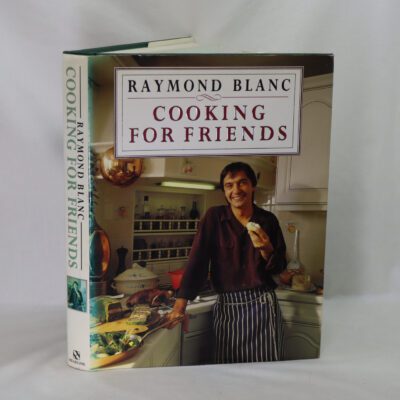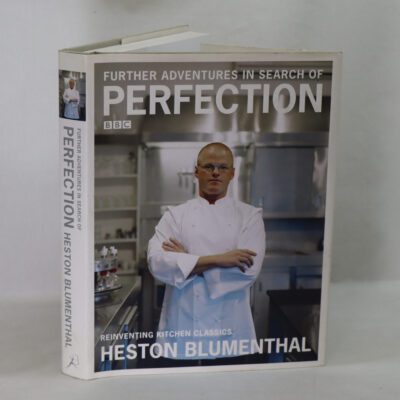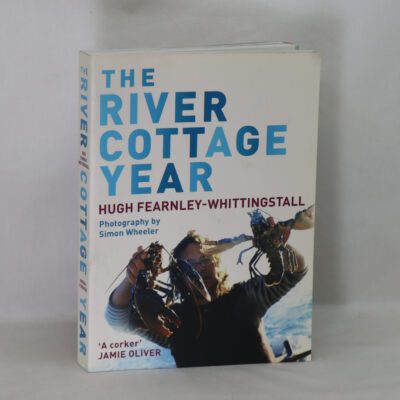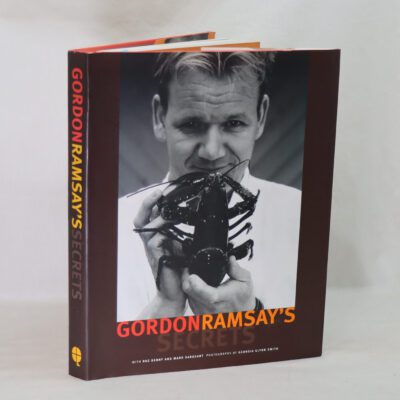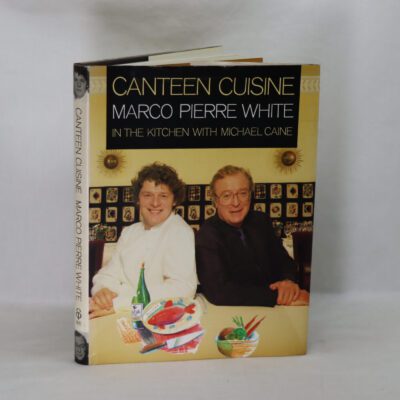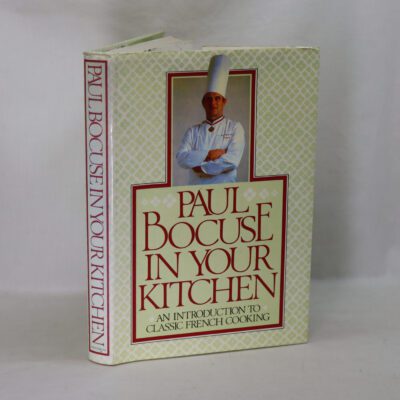The River Cottage Cookbook.
By Hugh Fearnley-Whitingstall
ISBN: 9780002202046
Printed: 2001
Publisher: Harper collins. L:ondon
| Dimensions | 20 × 25 × 5 cm |
|---|---|
| Language |
Language: English
Size (cminches): 20 x 25 x 5
Condition: Very good (See explanation of ratings)
Item information
Description
In the original dust jacket. Black board binding with embossed title on the spine.
We provide an in-depth photographic presentation of this item to stimulate your feeling and touch. More traditional book descriptions are immediately available
- Note: This book carries a £5.00 discount to those that subscribe to the F.B.A. mailing list
For conditions, please view our photographs. More than just a collection of Hugh’s recipes, this book is a witty, practical guide to the River Cottage lifestyle from Channel 4’s iconoclastic back-to-basics chef. Includes tips on how best to buy organic produce and, for the more adventurous, advice on rearing your own meat, growing your own vegetables, and tapping into the free wild harvest. ‘How much of this book you incorporate into your life is up to you. But if all you do is grow a few herbs in a window box, make nettle soup once a year, and try a free-range goose for Christmas instead of a frozen turkey, you will already, I hope, be enjoying your life more.’ Hugh Fearnley-Whittingstall. With over one hundred recipes and Simon Wheeler’s acclaimed photography, The River Cottage Cookbook has been a hugely influential and original book, appealing to all downshifters and those who prefer their food to be full-blooded and wholesome.The River Cottage Cookbook has won the Andre Simon Food Book of the Year Award, the Guild of Food Writers’ Michael Smith Award and the Glenfiddich Trophy and Food Book of the Year.
Review: An inspirational book that should come with a big bold warning: `Read at your peril. This book will change your life’. This is quite simply one of the best books ever written about food production, sourcing and meal creation. The way you view food will never be the same again once you have read this book. It’s a recipe book, a back to nature lifestyle book, a book of ethics and morality that really gets you questioning our modern farming practices and the quality of food it produces, and so much more.
It’s also a book that will have you yearning to return to nature, to start growing your own food, plant your own vegetable patch, to start raising some chickens and a pig or two. It’ll get you wanting to make your own bacon, dry cure your own meats, produce your own chorizos and salami’s, and make your own sausages. It’ll inspire you to try new recipes, new ingredients, new food types. It’ll stimulate you to be adventurous and inquisitive again about the food and what you eat. Ultimately it will get you to rediscover the joy of eating good home made food raised in a way that is respectful to both environment and animal welfare. And with it, it’ll inspire a passion for food that you never had before. It did me. I read this monster of a book in one go. It was un-put-down-able, and a real education and inspiration across the board. No wonder it won all the major prestigious cook book awards when it first came out. Whilst it is so much more than just a cook book, it is being sold with the word cook book in the title, so the key question is, how good are the recipes? In my view, based on the recipes I’ve followed, they are very good. I like the way he keeps them pretty simple and straight forward. No really fancy ingredients or excessive long list of hard to get seasonings. He’s very happy in many cases to limit seasoning to pretty much salt and freshly ground black pepper, and I must say, having made many of these recipes, he’s right. Good honest food with good honest taste. I’ve been inspired to try a lot of things I hadn’t really eaten before. His fresh tomato salsa and his rich tomato sauce with bacon recipes were really quite superb. I had low expectations on what such heavily tomato orientated recipes could deliver in terms of food enjoyment, and was delighted to find they were delivered in bucketfuls. I can’t remember the time I’d eaten a chutney prior to buying this book. But this book inspired me to make one. Not only was it easy, the recipe for River Cottage Chutney is absolutely delicious, a total revelation. We’ve gone from a household that rarely ate chutneys to one where it makes an appearance on pretty much every meal occasion we can think of. And I’d never even considered trying to make my own bacon from a piece of pork. But Hugh was so enthusiastic about this process I had to give it a go, and I’m pleased I did. My first attempt turned out a bit too salty (as Hugh had warned!) but what fun I had making it and what enjoyment I had eating it. And this really is the wonder of this book. It brings back pleasure and fun into your food preparation and eating. It makes the food you eat that much more special. And for me, never a great cook or cooker, it’s added a totally new dimension to my life, as I take up the challenge of exploring new recipes and meals. I therefore have no hesitation in highly recommending this book to you. It is a must read book for anyone with the slightest interest in the food they eat. But be warned. His passion for food is contagious, and you may well end up having major lifestyle and food outlook changes. Not only will you start eating really good meals again, the chances are your views on food sourcing and farm animal welfare will never be the same again.
Hugh Fearnley-Whittingstall is a multi-award-winning writer and broadcaster known for his uncompromising commitment to seasonal, ethically produced food and his concern for the environment. He has earned a huge following through his River Cottage TV series and books, as well as campaigning documentary series such as Hugh’s Fish Fight, Hugh’s War on Waste, Britain’s Fat Fight and War on Plastic with Hugh and Anita. A new River Cottage series, River Cottage Reunited aired in June 2022. Hugh established River Cottage HQ in Dorset in 2004, and the operation is now based at Park Farm near Axminster in Devon. An organic smallholding, HQ is also the hub for a broad range of courses and events, and home to the River Cottage Cookery School. Hugh continues to teach and host events there on a regular basis. He also oversees the menu and sourcing in the River Cottage Kitchen, the restaurant on site at HQ. Hugh’s broadcasting has earned him a BAFTA as well as awards from Radio 4, The Observer and the Guild of Food Writers. His award-winning books include The River Cottage Cookbook (2001), which won the Glenfiddich Trophy, the River Cottage Meat Book, which won the Andre Simon Award in the UK as well as the James Beard Award in the US. Hugh’s latest book How to Eat 30 Plants a Week, a Sunday Times bestseller, was published in May 2024. Hugh continues to work as a journalist, writing occasionally for the Guardian, Times and other national newspapers. He is a vice president of Fauna & Flora International and a patron of Switchback, a charity that helps young offenders find opportunities in the catering industry.
This book is from the library gathered by the famous Cambridge Don, computer scientist, food and wine connoisseur, Jack Arnold LANG. Jack founded the Midsummer House, Cambridge’s paramount restaurant. This dining experience is hidden amongst the grassy pastures and grazing cattle of Midsummer Common and perched on the banks of the River Cam. The Midsummer House experience is imaginatively curated to delight and amaze, so our surprise set menu changes regularly and is our playground to showcase our reverence for purity of flavour and natural seasonal ingredients.
Want to know more about this item?
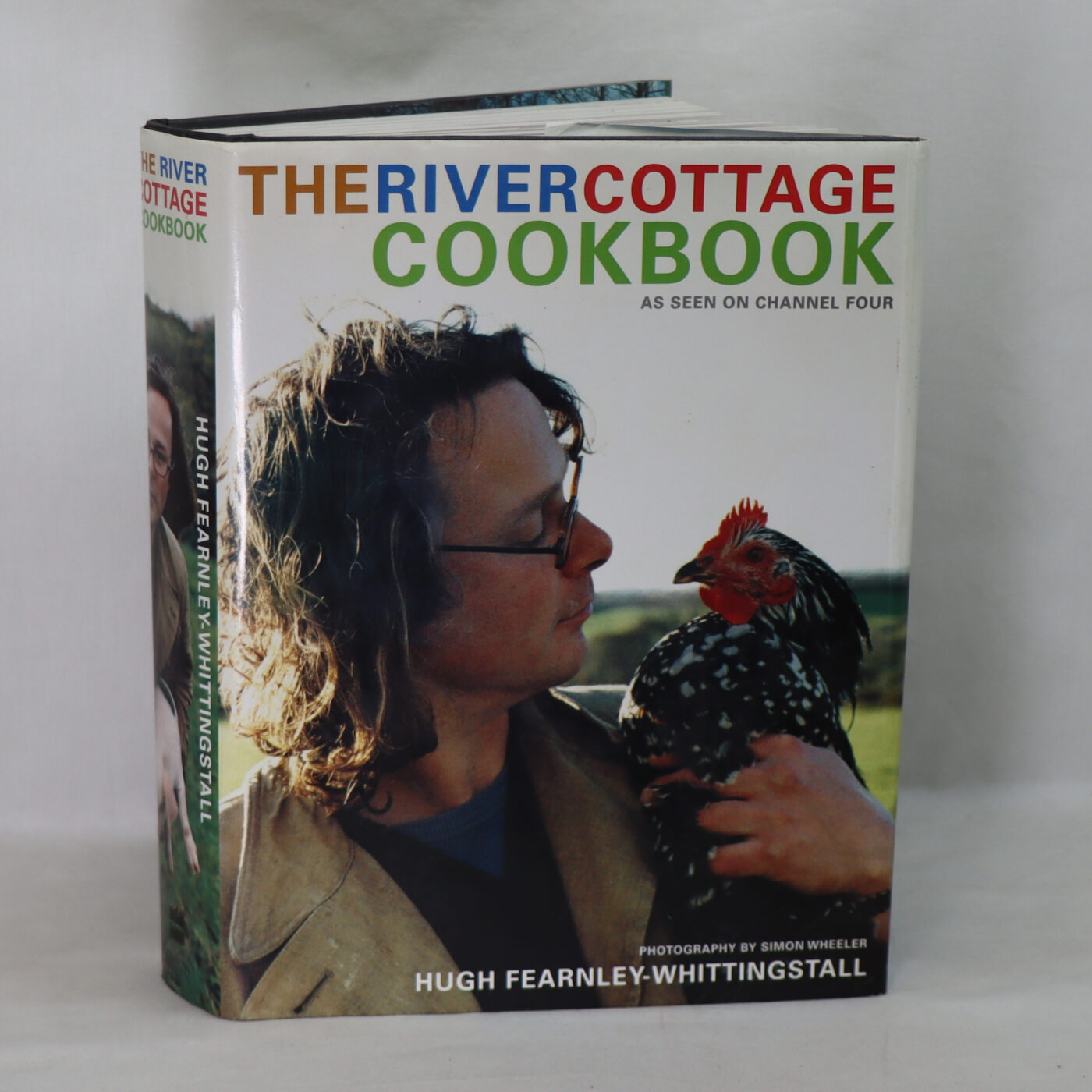
Related products
Share this Page with a friend

